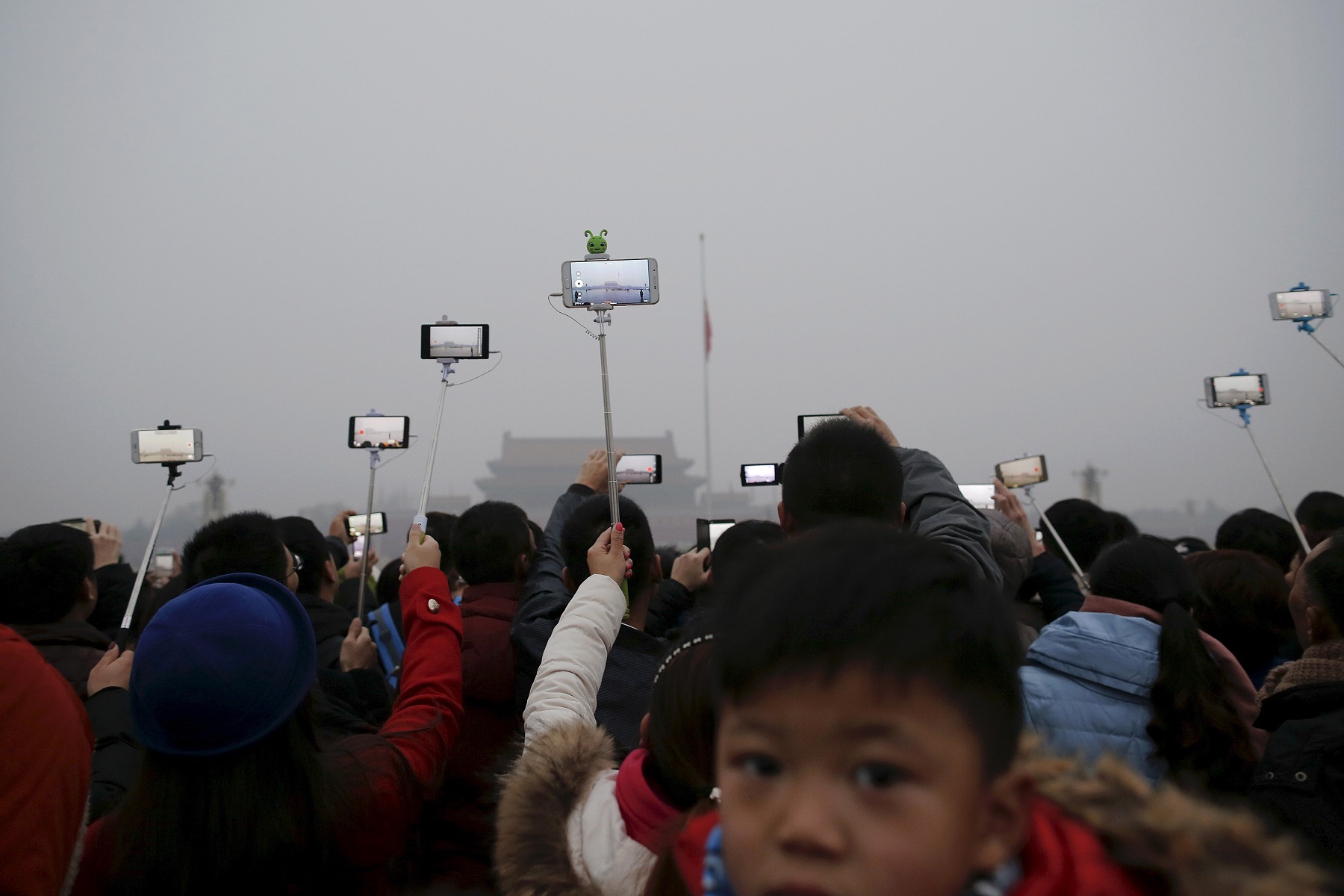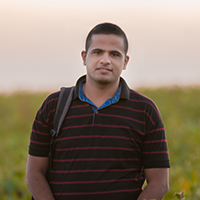من وقتٍ إلى آخر، تتعرض مناطق مختلفة في العالم العربي، لكوارث ومشكلاتٍ بيئية مثل سيول الأمطار وانجراف التربة والتلوث وغيرها، الأمر الذي ينتج عنه أحيانًا خسائر مادية فادحة في الممتلكات والأرواح، وهو ما تهتم غالبًا وسائل الإعلام بتغطيته وتخوض في تفاصيله حتّى أنّها من الممكن أن تخصص له مساحات كبيرة على مدار أيام طويلة.
وعلى الرغم من أهمية الأمر، إلّا أنّه يترك في كثير من الأوقات فجوةً في التغطية تأتي على حساب تناول تفاصيل الحدث البيئية ذات العلاقة بأسباب وقوعه والمراحل التي مرّ بها، والجهات المسؤولة عنه بشكل مباشر، وأبعاده على الظواهر البيئة الأخرى وتداعياته على مستقبل السكان.
والسبب في تلك الفجوة يعود بحسب ما يذكر أستاذ الإعلام محمد قيراط، إلى عدم توفر المعلومات للجمهور ووسائل الإعلام، وفي هذه الحالة، فإن فاقد الشيء لا يعطيه، ويضيف أنّه "لا يمكن الحديث حول الإعلام البيئي في ظلّ غياب كادر صحفي عربي متخصص، ومعالجة علمية سلسة ومفهومة وواضحة للقضايا البيئية المتنوعة".
بناءً على ما ذُكر، نحاول في هذا التقرير التعرّض للمفهوم التطبيقي للصحافة البيئية، إضافة لأهم الأسس والمبادئ الواجب توفرها بالصحفي الذي يرغب في تناول القضايا البيئية من منطلق بيئي متخصص، وكذلك الحديث عن الكيفية التي يمكن من خلالها الحصول على الأفكار المتعلقة بالجانب البيئي والمراجع التي تلزم لذلك، وسنتطرق لأنماط التغطية التي يمكن من خلالها أن تتم معالجة المشكلات البيئية والقوالب الصحفية التي تلزم معرفتها لتحقيق ذلك، ثمّ ننتقل لواقع الإعلام البيئي العربي والتوصيات اللازمة لتحسينه.
كيف تُغطِي قضايا البيئة صحفيًا؟
تقول الصحفية المتخصصة في شؤون البيئة والمحررة في مجلة "آفاق" ربى عنبتاوي: "الصحافة البيئية رسالتها مثالية وسامية، تتلخص في الحفاظ على الأرض واستدامتها، وتهدف لتناول كلّ ما يتعلق بالجوانب المحيطة بالإنسان، من أرض ومياه ونبات وحيوان وغيرها، وتدرس مدى تأثيرها على الإنسان وتأثرها به، وتشجع كلّ ما من شأنه أن يقلل الضرر على البيئة، وتتميز قضاياها بعالميتها فلا يمكن الحديث عن البيئة في بلدٍ صغير دون ربط ذلك بالعالم أجمع".
وتضيف "الصحفي البيئي هو الذي يتخصص بهذا النوع من العلوم ويتميز به عن غيره؛ من خلال إلمامه بتفرعاته، وهو كذلك ناشط ومحارب من أجل بيئته"، مكملةً "الأصل في صحافة البيئة أن تخدم أجندةً محددة، أيّ أنّ المسؤولية الأولى التي تقع على عاتق من يعمل بها هي معالجة قضايا بلاده المحلية ثم بعد ذلك يذهب للحديث في مشكلاتٍ بيئية إقليمية وعالمية إذا أراد".
وبالحديث عن أهم الأسس الواجب توفرها في الصحفي البيئي، توضح عنبتاوي أنّ احترافية الكتابة ومهنيتها تأتي في المقام الأول "فهي الطريق الذي تمرّ عبره الفكرة لتصل للجمهور"، مشيرةً إلى أنّ المعرفة البيئية مهمة، لكن ليس شرطًا أن تكون معمقة جدًا ومعقدة، "لأنّ الصحفي البيئي الجيد هو من يحترف الكتابة المؤنسنة بنسبة 80%، ويمتلك معرفة بيئية بنسبة 20%"، إضافة لذلك عليه أن يكون مؤمنًا بالقضايا التي يكتب عنها، بمعنى أنّه لا يمكن لنا أن نتخيل صحفيًّا يناصر قضية بيئية وفي الوقت نفسه يلقي النفايات على الأرض أو يدير محلًا لبيع المواد الكيميائية مثلًا.
وتبيّن الصحفية التي تعمل في المجال البيئي منذ العام 2008، أنّ تَحري قضايا البيئة الصالحة للتغطيات الصحفية يتم من خلال أساليب متعددة منها المشاهدة الذاتية ومعايشة الواقع البيئي، والمتابعة الآنية للأخبار المحلية والدولية ذات العلاقة بظواهر البيئة، وكذلك الانضمام لمجموعات ومؤسسات تهتم بعلوم الطبيعة، إضافة لإمكانية استثمار مواقع التواصل الاجتماعي وإنشاء صفحات مهمتها استقبال المشكلات البيئية التي يلاحظها المواطنون.
"مراقبة البيانات الإحصائية الرسمية وربط بعض الأرقام الملفتة بالزراعة والاقتصاد والصحة بأسباب بيئية أمرٌ مهم، وكذلك الانتباه للقوانين والسياسات البيئية ودراسة فاعليتها وتأثيرها من أجل حماية البيئة" تُكمل كلامها، لافتةً إلى أنّ العودة للتاريخ والماضي قد تدفعنا أحيانًا لإعداد قصة قادرة على إعطاء مؤشرات مهمة في الحاضر، فمثلًا تحوّل وادٍ كان يشتهر بمياهه العذبة إلى مجرى للمياه العادمة قصة مثيرة للاهتمام.
أمّا عن أنماط الكتابة في الصحافة البيئية، تروي عنبتاوي أنّ الأنماط الصحفية الخمسة المتمثلة بالخبر والتقرير والحوار والمقال والتحقيق يمكن من خلالها تناول قضايا البيئة، ولكل نمطٍ استخدام مستقل، لكنّها في الوقت ذاته، تعتقد أنّ التحقيقات الاستقصائية، هي سيدة الكتابة في هذا النوع من أنواع الصحافة المتخصصة؛ وذلك لقدرتها على كشف الحقائق وعرضها للجمهور "عملتُ في فتراتٍ سابقة على عدد من التحقيقات بالتعاون مع شبكة أريج للصحافة الاستقصائية، منها تحقيق عن موسم إعدام الشجر والذي يتحدث عن التحطيب الجائر، وآخر يدور حول دراسات تقييم الأثر البيئي التي تعطي شرعية لإقامة مصانع ملوثة للبيئة".
وتذكر أنّها لا تعتمد قالبًا معينًا في كتابة وتغطية القضايا البيئية، وذلك لأنّها تعتبر القوالب - وعلى الرغم من كونها أساسًا علميًا تحاول الالتزام به قدر الإمكان- "قيدًا على الكتابة" وفقًا لقولها، متابعةً "يمكن أن نبدأ التقرير البيئي الذي يعرض مشكلة معينة بالمتضررين ثم المتسببين ونواجه بعد ذلك المسؤولين، وبذلك نكون قد حققنا توازنًا ينحاز للحقيقة الكاملة، وينظر للقضية البيئية نظرة شاملة ولا يستند على موقف طرف دون باقي الأطراف".
الواقع العربي ومتطلبات النهوض
من جهته، يسرد الباحث في شؤون البيئة عمر عاصي أنّ واقع الإعلام البيئي في الوطن العربي ما زال متأخرًا جدًا على الرغم من وجود بعض المحاولات والمبادرات التي حاولت النهوض به خلال السنوات الماضية، ويُرجع ذلك لأسباب متعددة أهمها اعتماد المؤسسات الصحفية العربية فيما تقدمه من معلوماتٍ بيئية على ترجماتٍ تنقلها عن مواقع وصحف أجنبية دون أن تنظر في مدى ملائمة تلك المعلومات لجمهورها، إضافة إلى أنّها تنشر وجهة نظر واحدة في معظم قضايا البيئة، وتكون أحيانًا غير مُسندة بدليل علمي أو برهان.
وينبّه إلى أنّ هناك عددًا من البلدان العربية، خالية تمامًا من وسائل إعلامية ودوريات متخصصة في مجال البيئة "وهذا الأمر يعتبر كارثة حقيقية"، لكنّه يذكر أنّ بلادًا أخرى حاولت جماعات فيها إنشاء مواقع ودوريات مطبوعة تتناول قضايا البيئة، مبيّنًا أنّ تغطيتها اقتصرت على الأخبار والتقارير المُعتمدة في بنائها على معلوماتٍ سطحية لا تشير لمستوىً عميق في التشخيص والتحليل، وبحسب أبو عاصي فإنّ السبب يعود في ذلك لغياب التمويل والاهتمام الرسمي، وكذلك انشغال الساحة العربية بالشؤون السياسية، على حساب الشؤون الأخرى.
أبو عاصي الذي يكتب في مجلة "نقطة" البيئية ضمن سلسلة "عمران" المخصصة في اتجاه أنسنة قضايا البيئة، يوضح خلال حديثه أنّ البُعد الإنساني هو الأهم في تناول قضايا البيئة، لأنّ العالم يتجه اليوم نحو الاستدامة في تناول جميع التفاصيل ذات العلاقة بحياة الإنسان، متابعًا "معنى ذلك أنّ الصحفي يجب أن ينظر لأيّ قضية من ثلاث زوايا هي الاجتماعية والبيئية والاقتصادية"، ويضرب مثالًا على ذلك بقوله "لا يجوز لنا الحديث بإيجابية حول مشاريع الطاقة الشمسية في دولةٍ ما تستغل الأطفال للعمالة فيها. الأمر هنا مفيد من الناحية الاقتصادية والبيئية لكنّه في ذات الوقت مضر للتكوين المجتمعي".
ويتفق مع الصحافية عنبتاوي بأنّ التحقيق الاستقصائي هو أفضل الأدوات لتناول القضايا البيئية خاصّة إذا كان الحديث عن سلبيات وليست إيجابيات، وأنّ عملية الكتابة عن أيّ مشكلة بيئية يجب أن تمرّ بالتسلسل الصحفي المنطقي، فالأصل في البداية أن تكون التغطية خبراً، وإذا لزم الأمر نذهب للتقرير والتحقيق وغيرهما، مستدركًا "قضايا كثيرة يمكن أن يكتب عنها الصحفي دون أن يضطر للنزول ميدانيًا، لكنّ ذلك لا يصلح مع قضايا البيئة التي تحتاج لمعاينةٍ ذاتية وتحقق دقيق من صحة المعلومات والحدث".
وفي ختام كلامه، وجه أبو عاصي ثلاث نصائح للصحفيين الراغبين في تناول قضايا البيئة بمهنيةٍ وعمق، أولها ضرورة الانطلاق في الكتابة من القضايا المحلية ثمّ بعد ذلك نتحدث عن عالمية المشكلة إذا تطلب الأمر، وثانيها العمل على تبسيط المفاهيم المعقدة للقراء من خلال المداومة على تحصيل المعرفة البيئية الدقيقة، وثالثها الاعتماد على مبدأ الشك خاصّة في موضوع المنتجات الكيميائية وفي التقارير التي ترافق إنتاجها؛ لأنّ الشركات الكبرى تتجه أحيانًا لممارسات غير أخلاقية من أجل تحقيق أرباح أكثر.








































